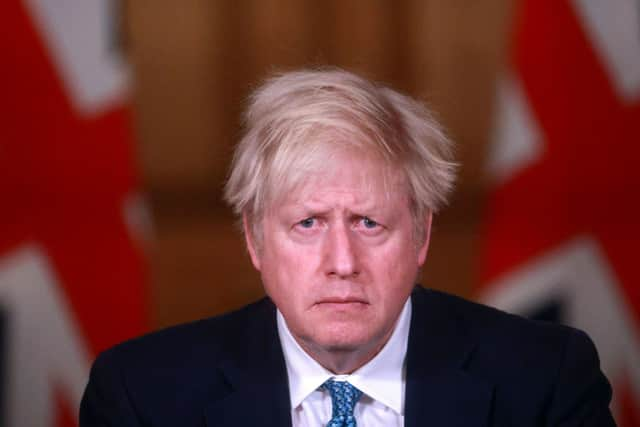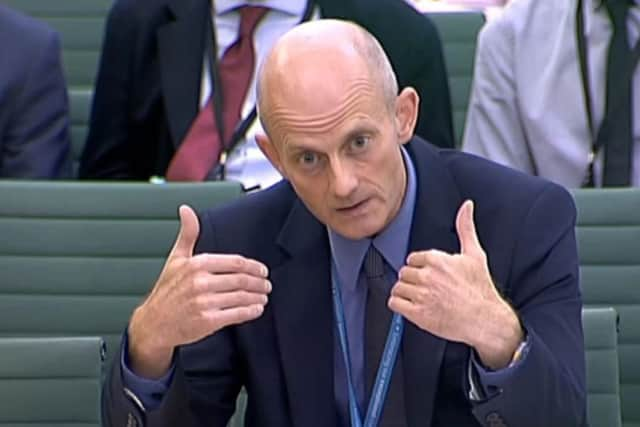How devolution will decide Britain’s future – Philip Rycroft


Like it or loathe it, the argument is over – the country is out of the EU. So, can the UK now go about its business, free of constitutional wrangling and internal division?
It would be good if it were so. But it doesn’t look as though 2021 will usher in the sort of governance stability that many hanker after.
Advertisement
Hide AdAdvertisement
Hide AdAt some point this year, pandemic allowing, there will be a number of important elections across the UK.


The outcome of those elections could play a crucial role in shaping the next few years for the North as well as determining just how committed the UK Government is to its levelling up agenda.
In England, council elections will provide the first snapshot of how recent events have impacted on the support for the main parties.
At the same time, the campaigns for elections to the Scottish Parliament and the Welsh Senedd will demonstrate vividly that the debate about the UK’s post-Brexit future is far from settled.
Advertisement
Hide AdAdvertisement
Hide AdIn Scotland, which in 2016 voted decisively to stay in the EU, disquiet about Brexit and a diminishing European future have driven an important tick upwards in support for independence.


Polls throughout 2020 recorded over 50 per cent backing for independence, with some polls coming out as high as 58 per cent.
This is matched by strong and resilient support for the SNP which, if sustained to polling day, will almost certainly deliver a majority, possibly a handsome majority, for the nationalists in the new Scottish Parliament.
If that is the outcome, the demand for a second independence referendum will redouble in intensity. A Boris Johnson-led UK government will almost certainly refuse the legal permission necessary to hold such a referendum which will result in a bitter stand-off between the two governments. This is likely to be one of the big stories of 2021, with the future of the United Kingdom itself hanging in the balance.
Advertisement
Hide AdAdvertisement
Hide AdThe stakes may not appear to be as high in Wales, but even here the long-standing and deeply rooted support for the UK union is eroding.
One recent poll had support for independence at over 30 per cent, an unprecedented level for the Principality. Dissatisfaction with the direction of travel taken by the UK as a whole has pushed more and more people in Wales into the camp of the indy-curious.
For Northern Ireland, 2021 brings a complex set of new trading arrangements. Necessary to avoid a hard border on the island of Ireland, a new trade border down the Irish Sea will have long-term, but uncertain, implications for the orientation of economic activity in Northern Ireland. No-one really knows what this might do over time to support in the North for unification with the South.
So, we may find that in 2021 we have swapped talk about exiting one Union for endless speculation about the future of the other one.
Advertisement
Hide AdAdvertisement
Hide AdBut what of England in all this? It would be wrong to look at what’s happening in Scotland and Wales and not consider the impact on England.
One lesson from the campaign that led to Brexit is that there is a deep and unmet hankering for an expression of English identity. Paradoxically, England is the only part of the UK without its own layer of formal governance.
English Votes for English Laws, the mechanism introduced by the Cameron government in 2015 to give English MPs a veto over laws that affect England only, is thin gruel indeed. Can politicians continue to ignore the demand for an English voice, or does that too bubble up again as unfinished post-Brexit business?
Governance within England too is not in a fit state. Successive governments have made a poor fist of devolving real power and influence to the cities, counties and regions of England.
Advertisement
Hide AdAdvertisement
Hide AdWith single-tier authorities, two-tier authorities, cities with mayors and cities without mayors, city-regions with metro-mayors, rural areas with devolution deals and rural areas without, with different geographies for health, policing and fire, the whole thing is a mess.
As we have seen once again in the handling of the pandemic, the instinct of Whitehall is still to hoard power, to act as though the centre always knows best.
This surely is an unsustainable state of affairs, not least for a part of the world with a proud sense of itself like Yorkshire (and I write as someone Yorkshire born and bred).
Like others before it, this Government talks a good game on devolution within England, but will it recognise that its levelling up agenda will only succeed if it gives real power to the cities and regions of England to shape their own future?
Advertisement
Hide AdAdvertisement
Hide AdWe have seen the city and regional mayors successfully flexing their muscles while arguing for more economic support during pandemic.
That only underlines the imbalance of the current set-up in England. If levelling up the North is to be achieved, why shouldn’t West or North Yorkshire have the same political clout as Manchester or the Liverpool city region?
Brexit brings an era of integration with our European neighbours to an end. But it leaves the United Kingdom itself in an unsettled state.
Our constitutional upheavals may be far from done.
* Philip Rycroft was the lead civil servant in Whitehall responsible for constitutional and devolution issues between 2012 and 2019. He now works with consultancies Flint Global and 56° North.
Advertisement
Hide AdAdvertisement
Hide AdSupport The Yorkshire Post and become a subscriber today. Your subscription will help us to continue to bring quality news to the people of Yorkshire. In return, you’ll see fewer ads on site, get free access to our app and receive exclusive members-only offers. Click here to subscribe.
Comment Guidelines
National World encourages reader discussion on our stories. User feedback, insights and back-and-forth exchanges add a rich layer of context to reporting. Please review our Community Guidelines before commenting.